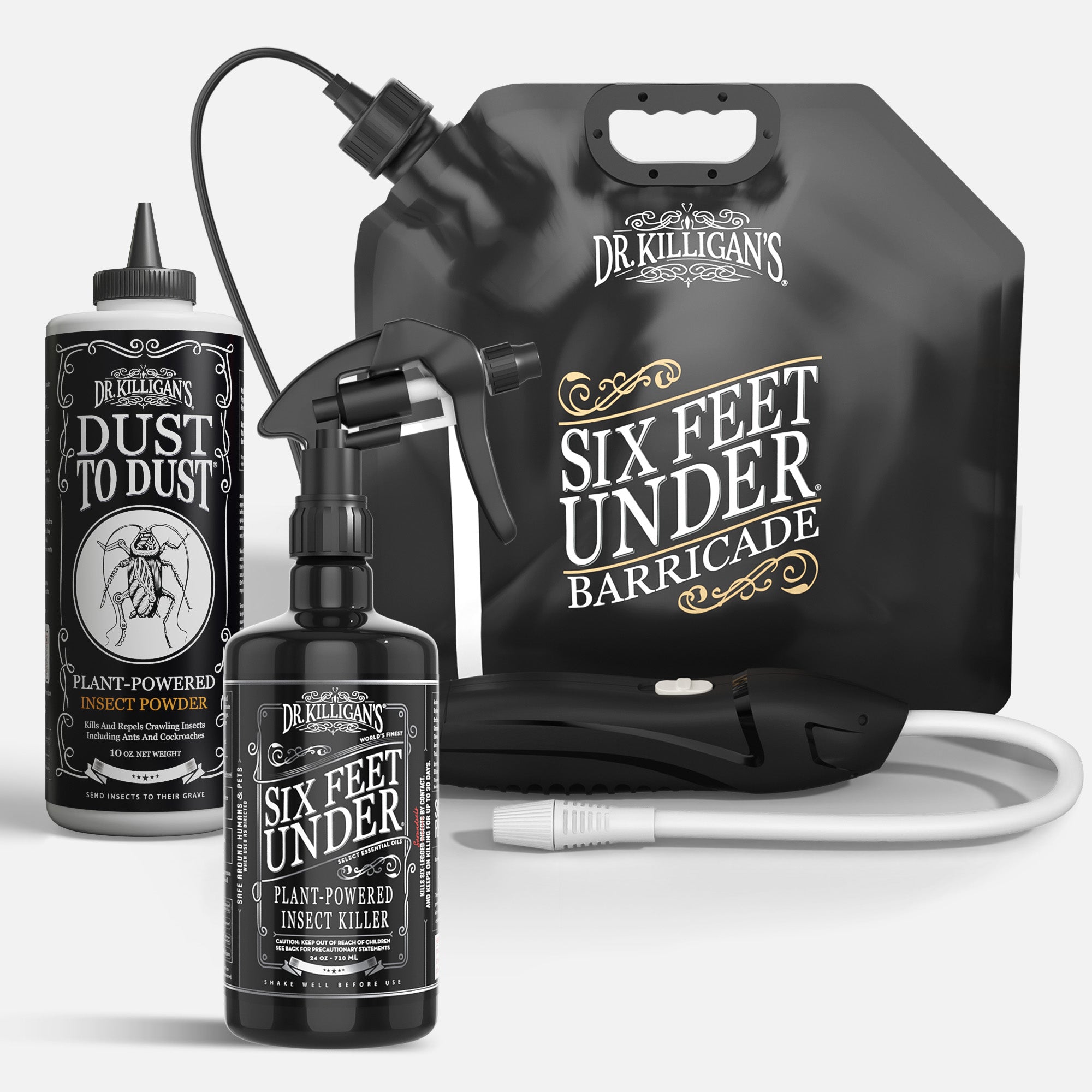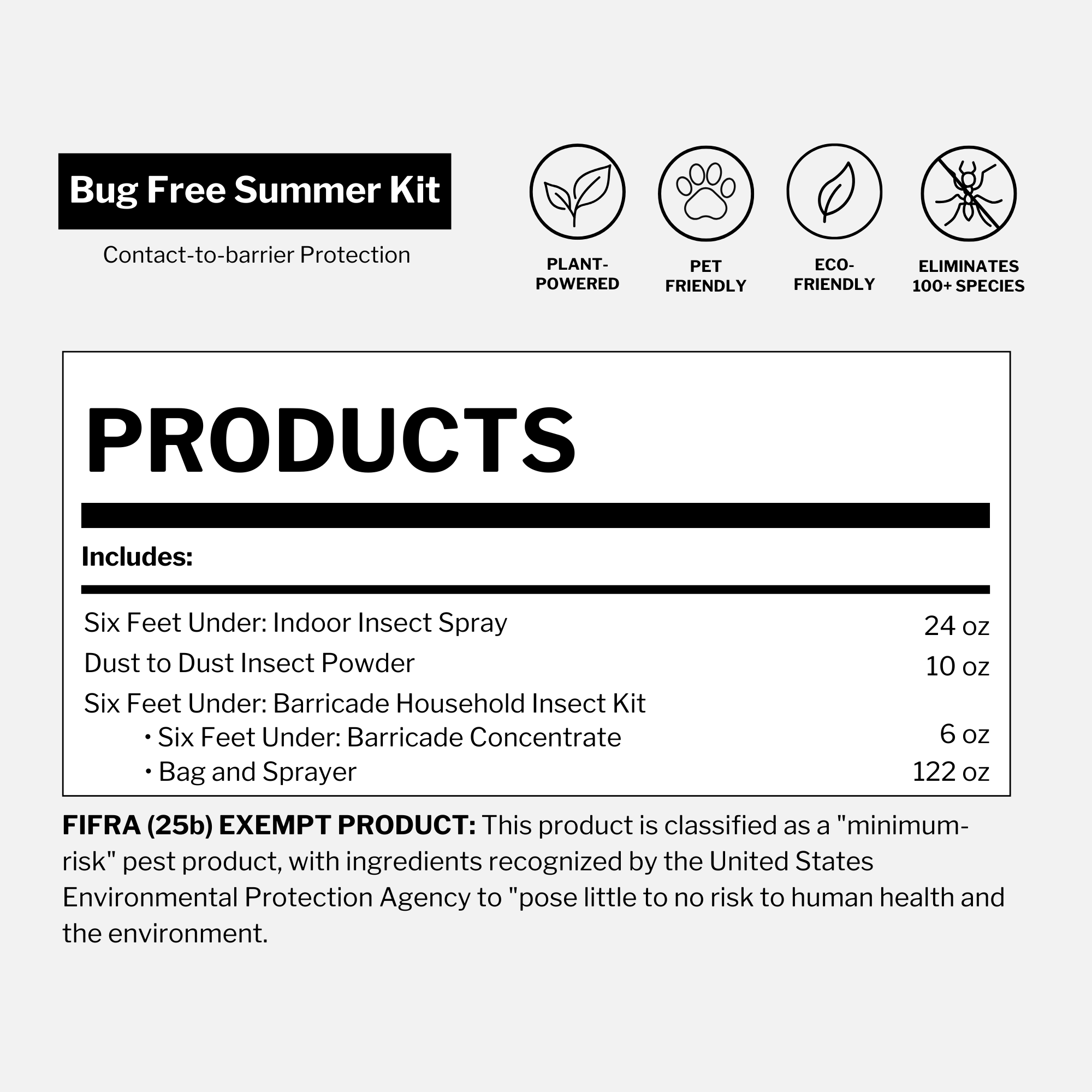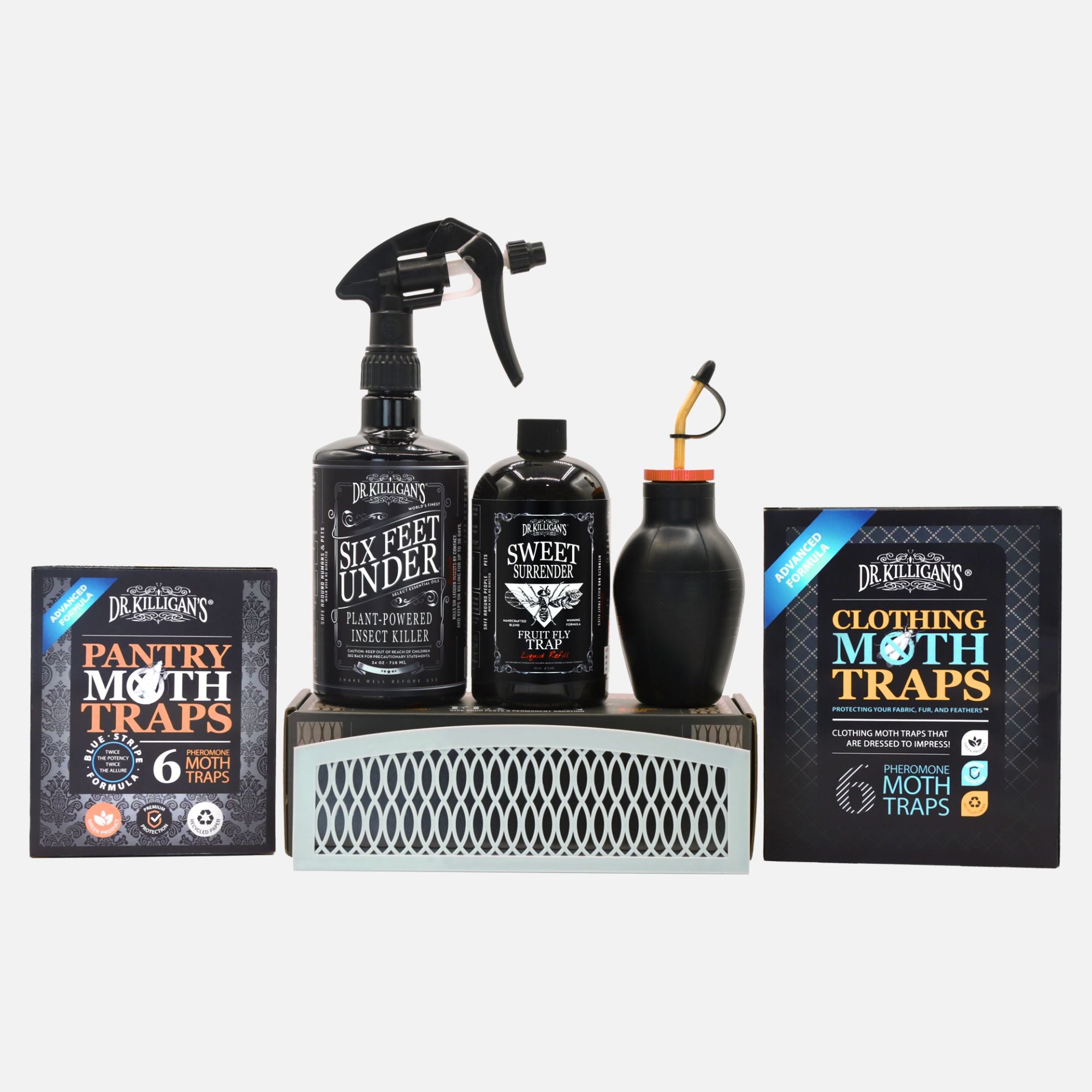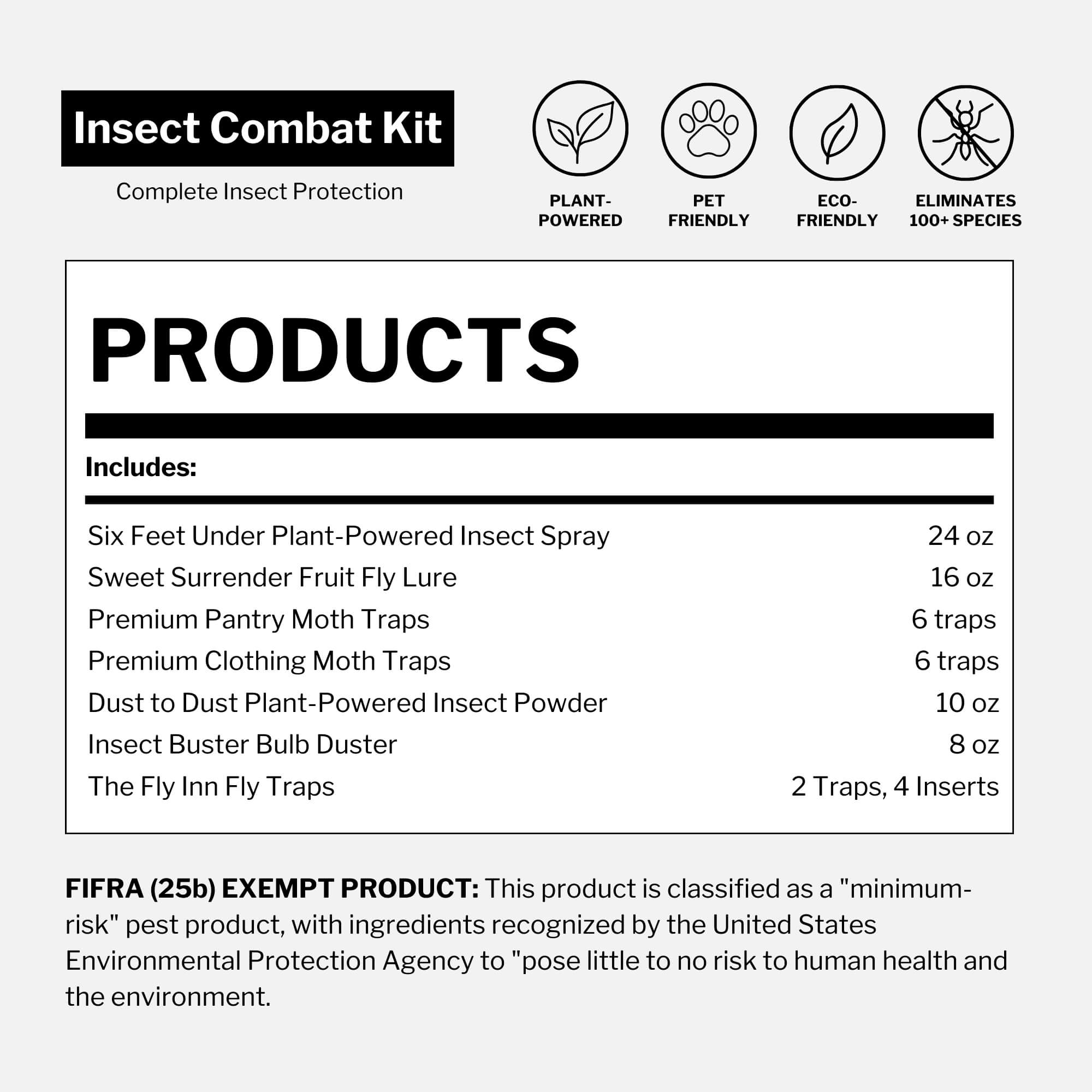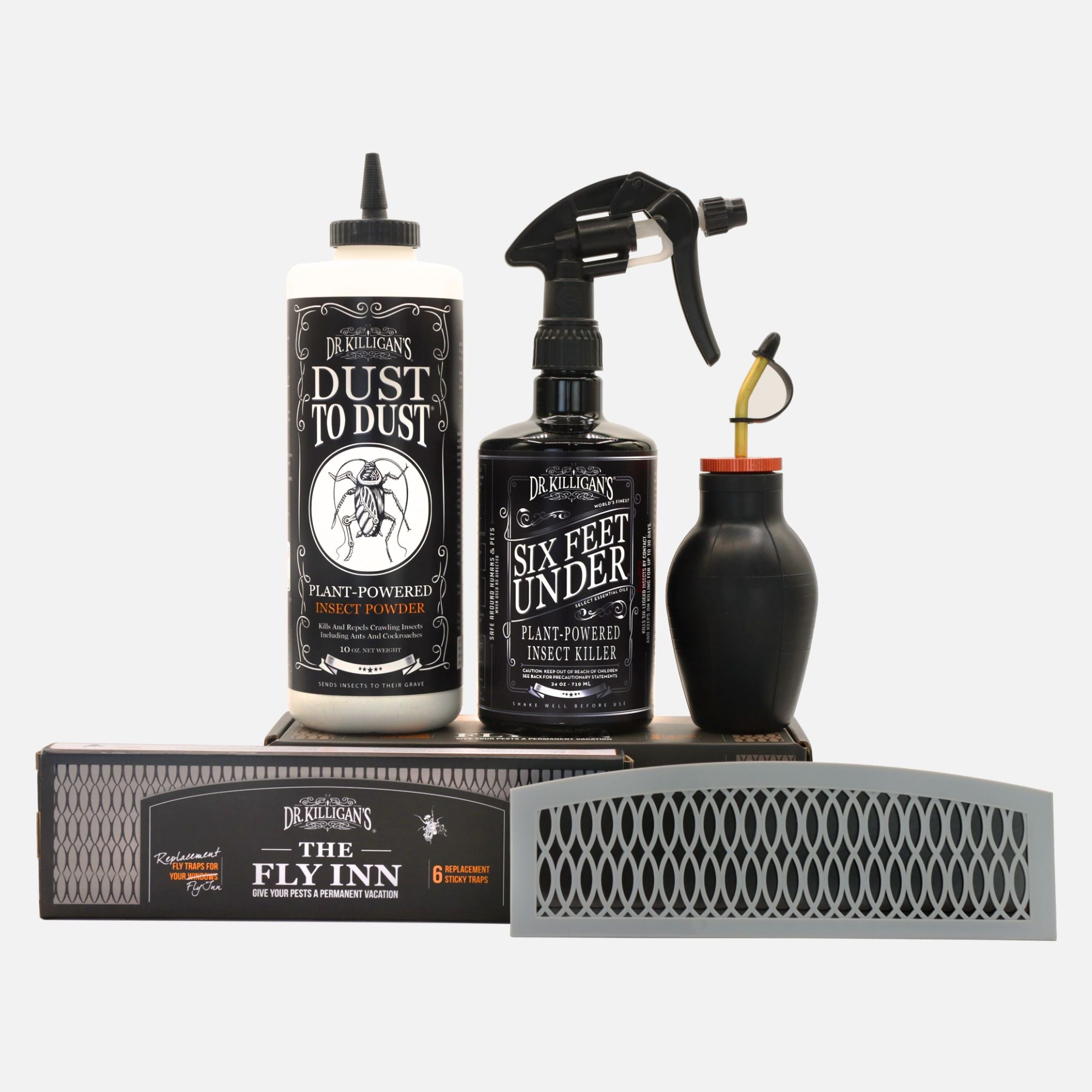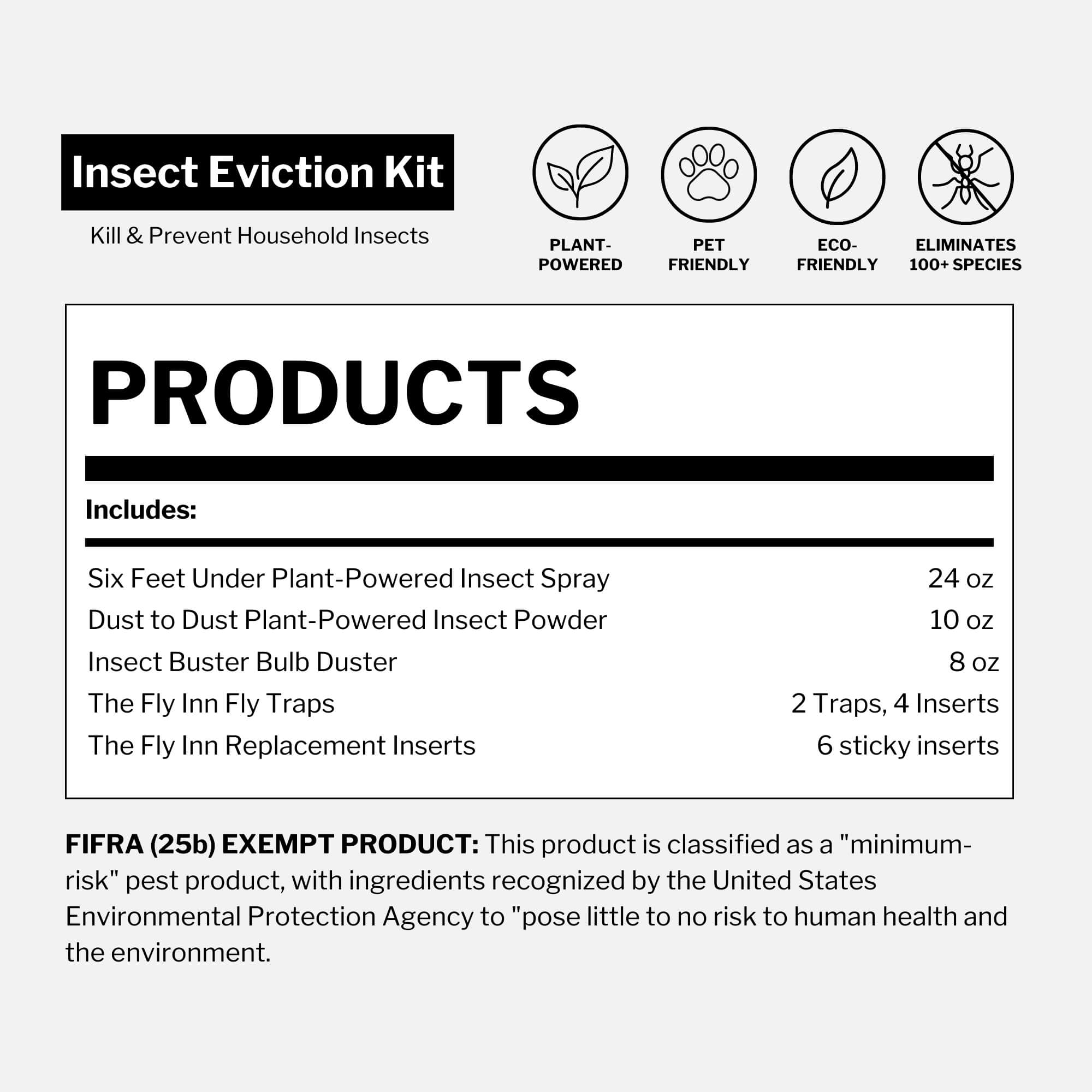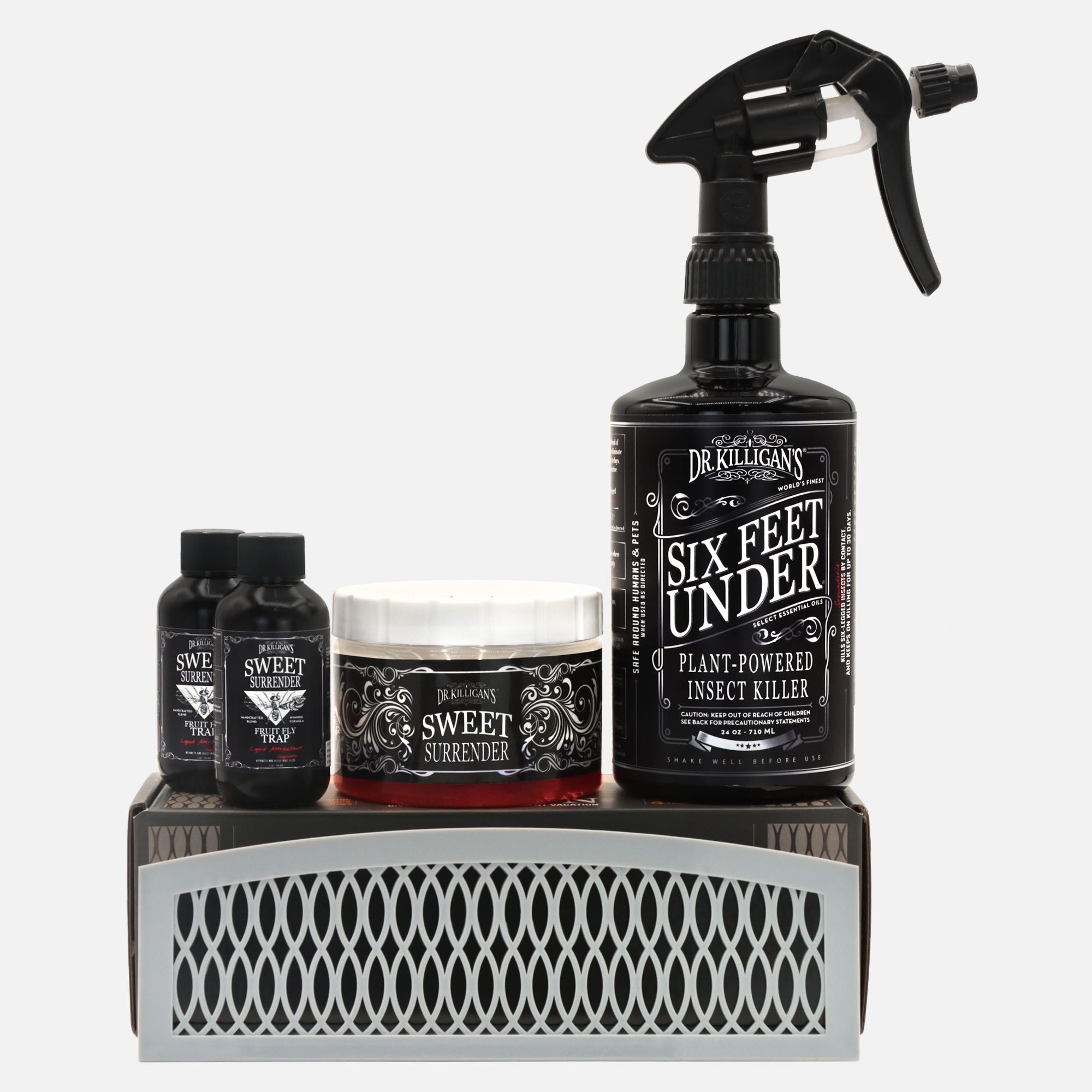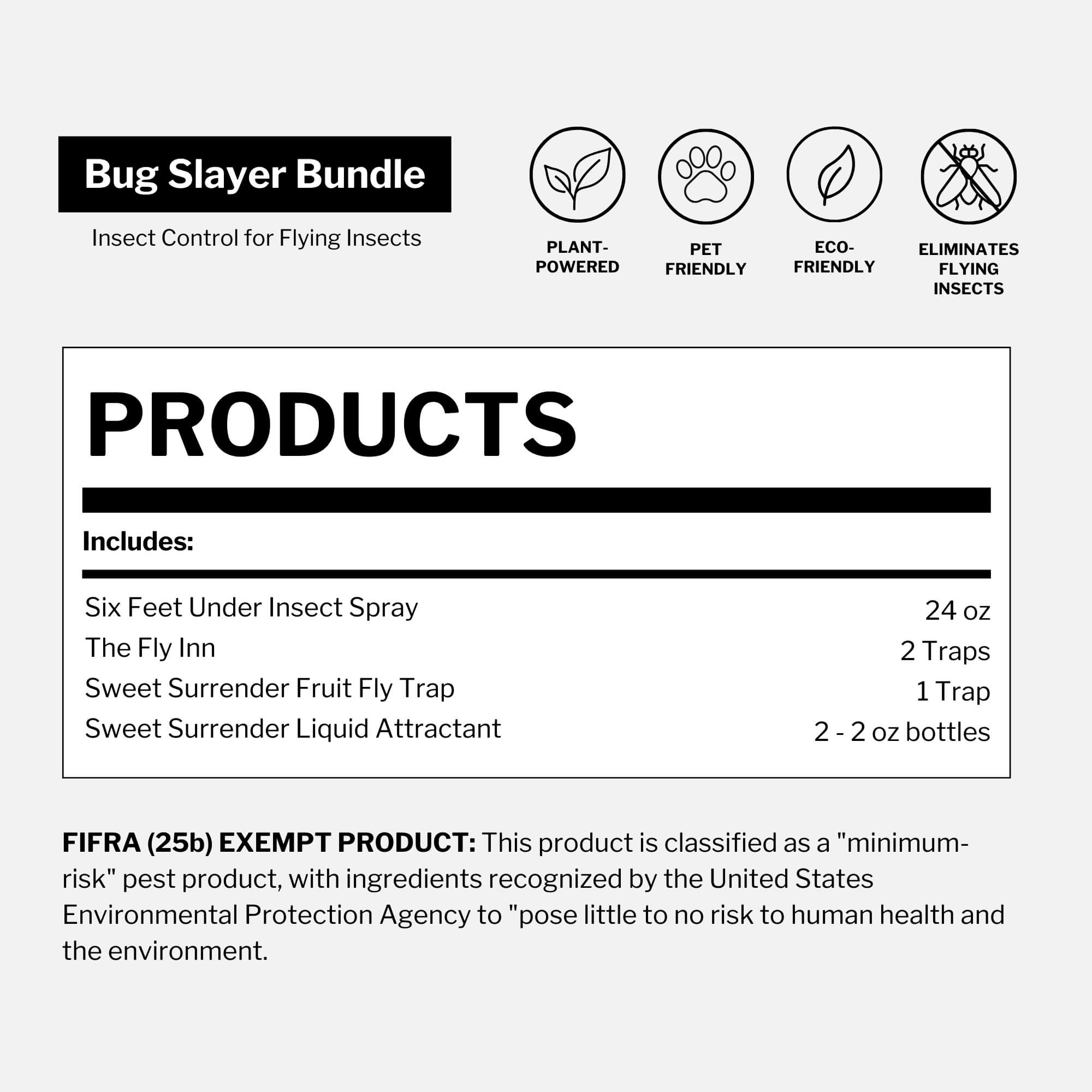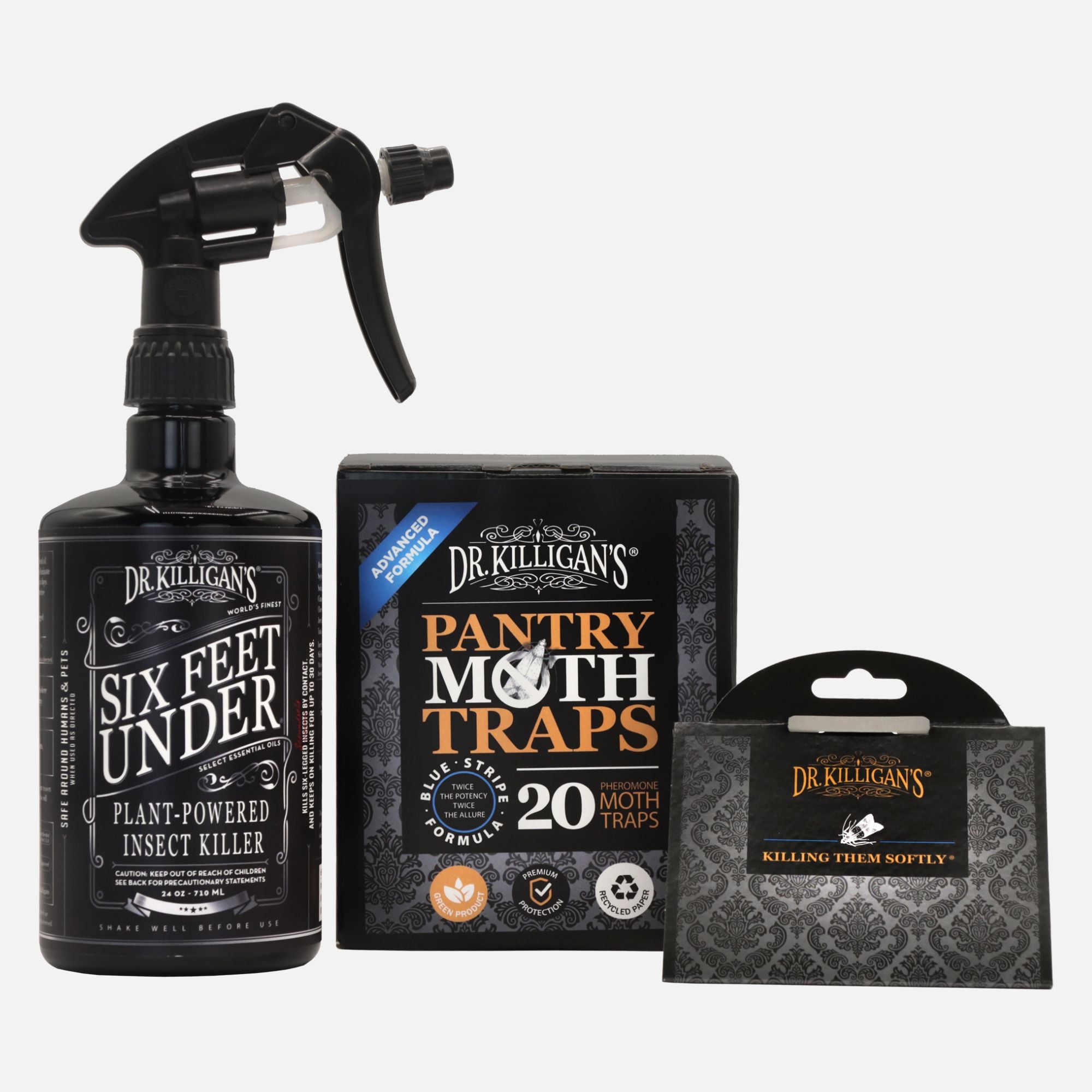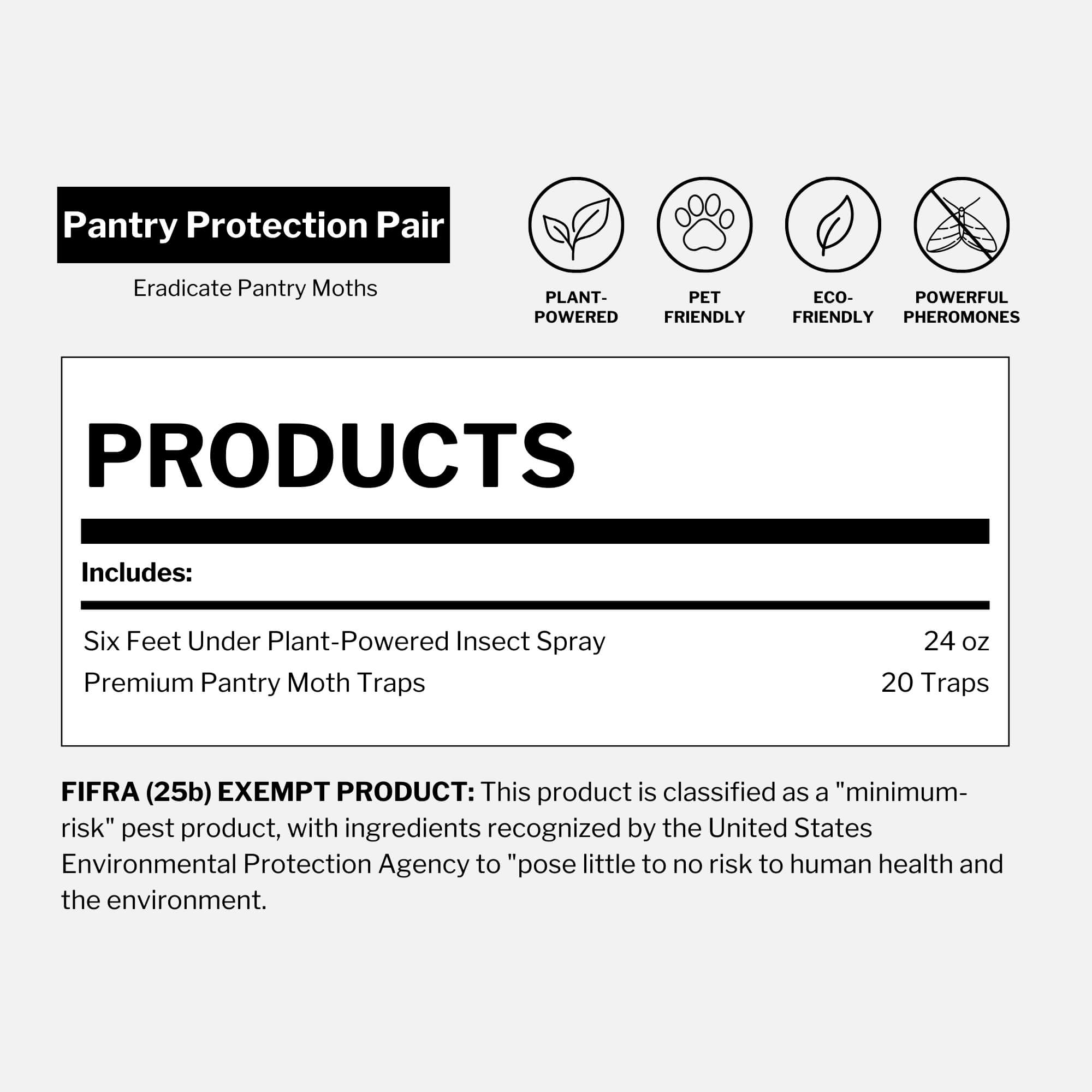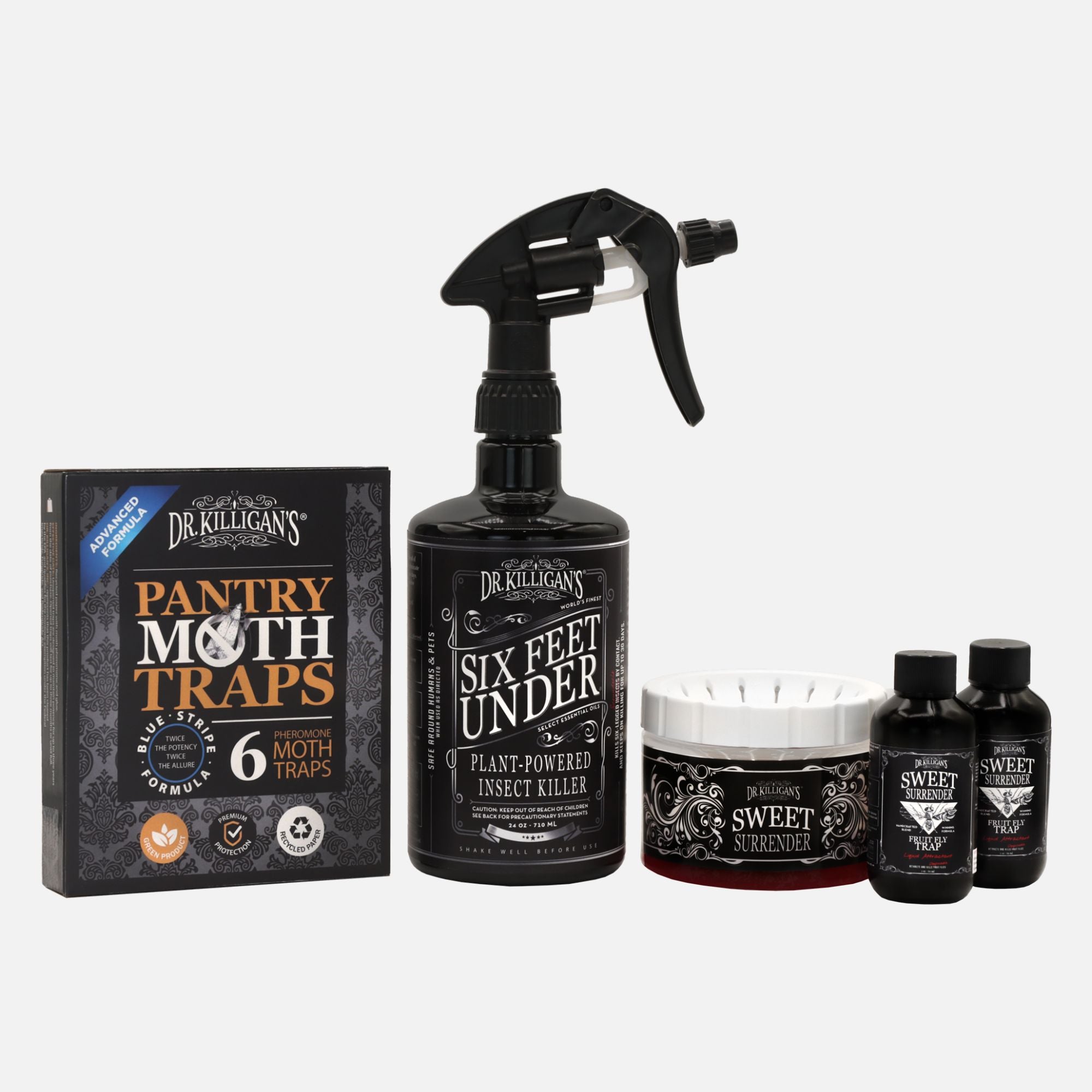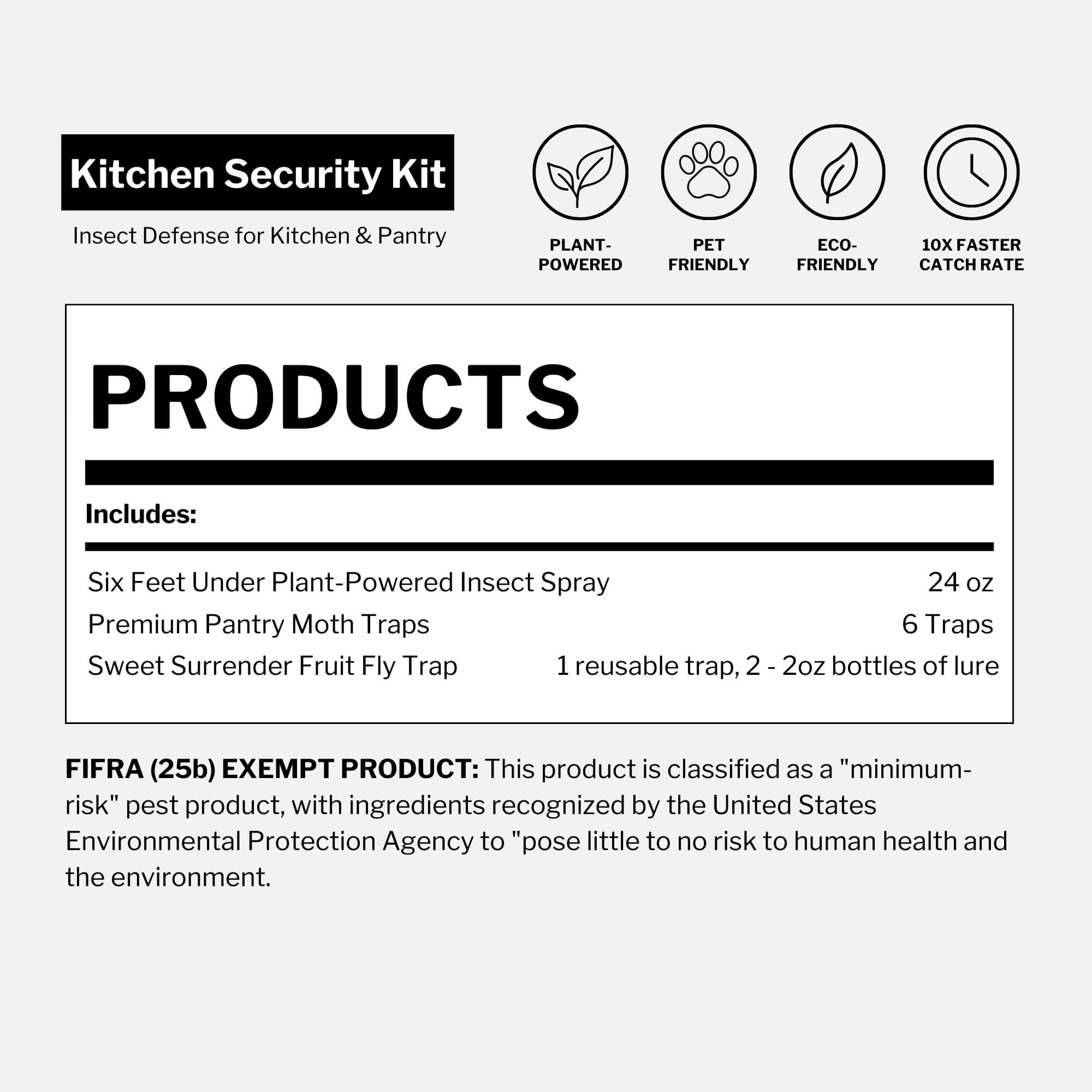Updated on August 19th, 2025
Pets are family and keeping them safe is non-negotiable.
Conventional chemical pesticides can threaten cats, dogs, and small animals, but tested, pet-safe solutions help you protect your pets while controlling pests efficiently.
This guide covers understanding pesticide risks for pets, safe pest management at home and proven solutions like Dr. Killigan’s Six Feet Under: Barricade so you can keep your pets and home safe without compromise.
Why pet-safe pest control matters
Pet parents face a unique challenge: managing household pests without putting furry, feathered or finned companions at risk.
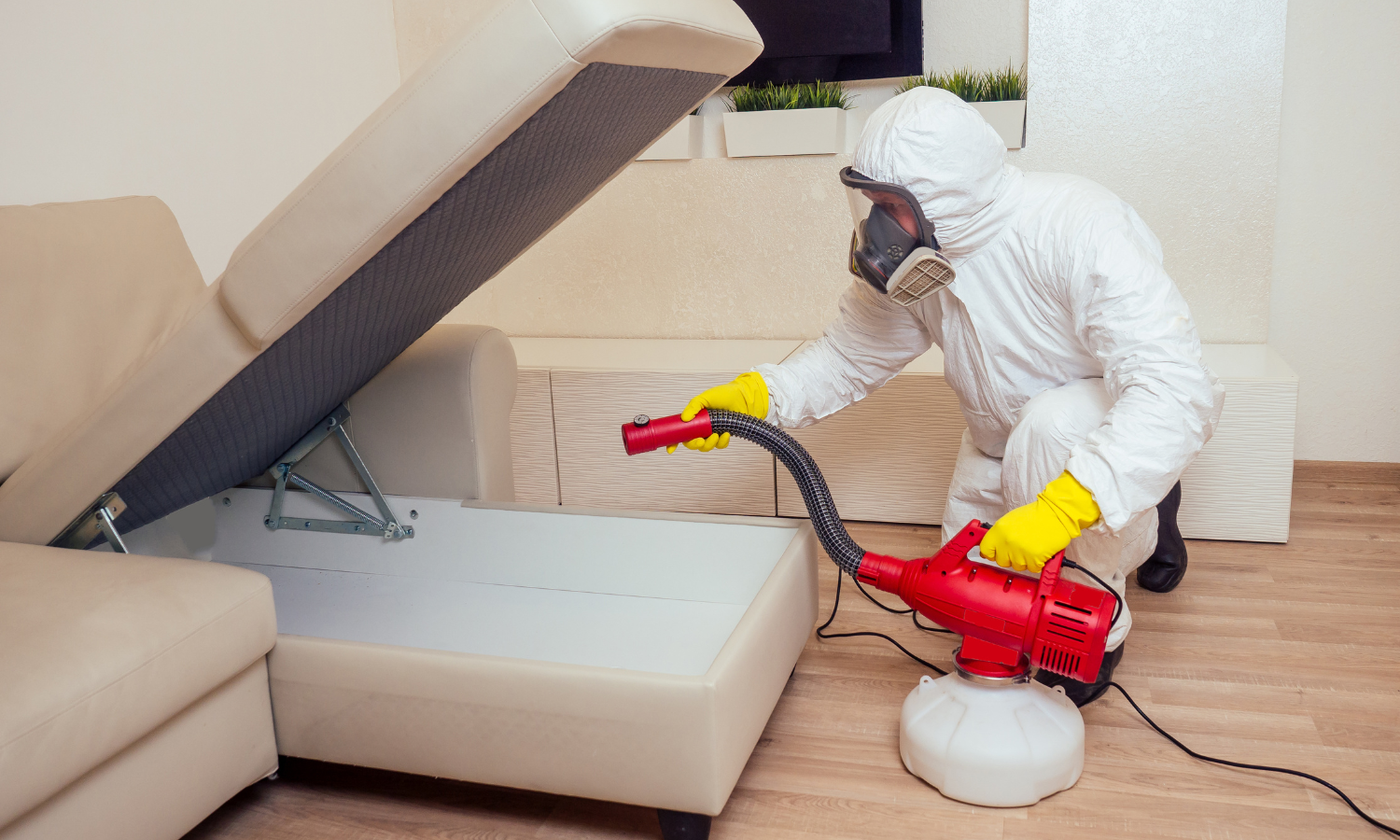
Cats, dogs and other animals explore and groom their environment constantly, increasing the likelihood of exposure to conventional pesticides. Adverse reactions can occur if pets contact chemical residues, sometimes requiring urgent veterinary care.
Data from the American Society for the Prevention of Cruelty to Animals (ASPCA) and the National Poison Data System (NPDS) show that pesticides consistently rank among the top causes of pet poisonings, with dogs and cats most frequently affected. These findings highlight how easily conventional pest control methods can pose serious threats to the animals we consider part of the family.
Understanding pesticide risks for pets
Before using chemical pest control, pet owners must carefully weigh the risks and benefits. Households with dogs, cats or children face higher exposure to dangers.
That’s why experts stress caution. For instance, a Pest Control Technology article notes that applying pesticides indoors or outdoors requires strict precautions to protect pets and humans.
Is the use of chemical pesticides worth the potential health risks for your animals?
Symptoms of pesticide exposure, such as vomiting, diarrhea, tremors, seizures, lethargy and excessive drooling can appear within minutes to hours. Recognizing these early signs is critical, as prompt veterinary care often determines whether pets recover fully.
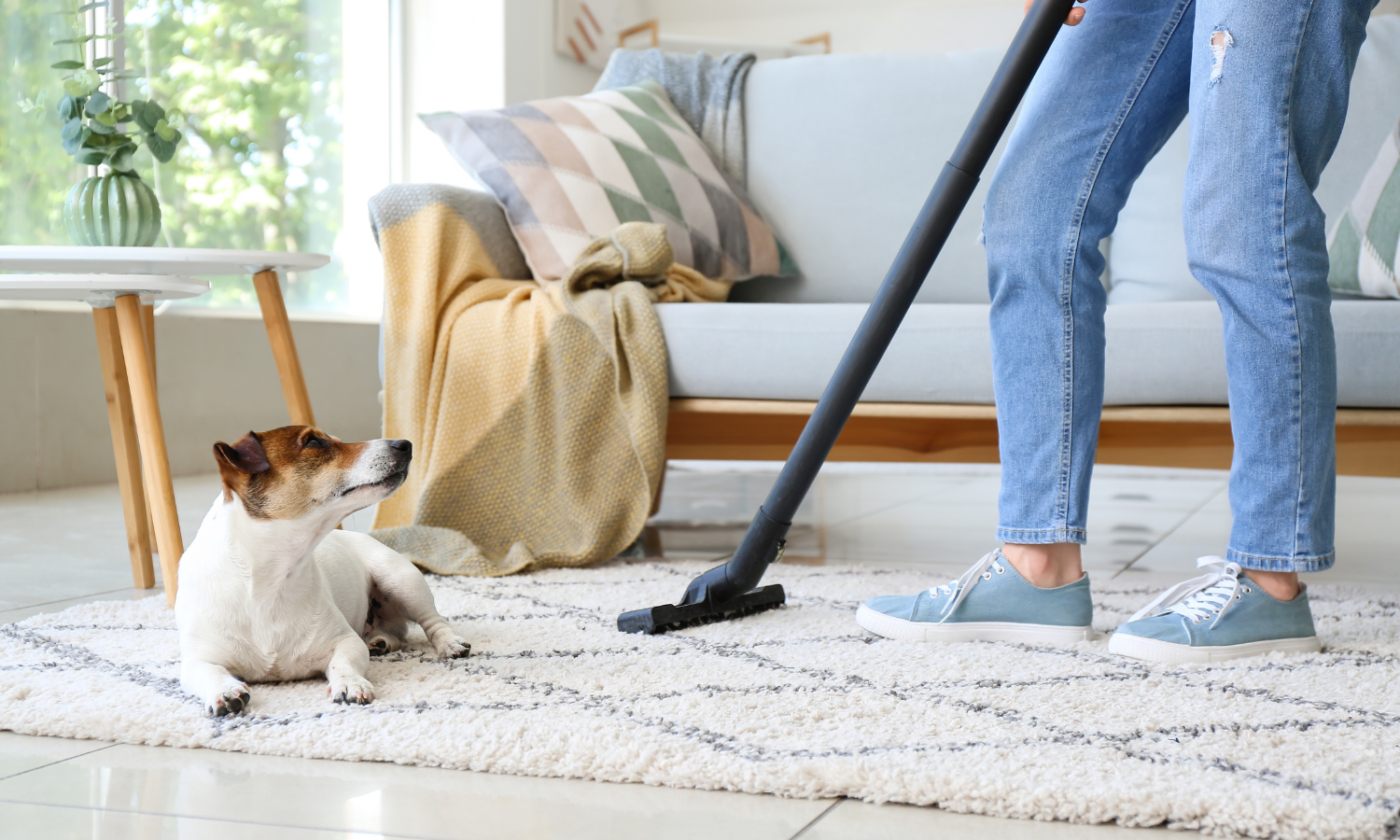
Certain pets are especially at risk. Puppies, kittens and smaller breeds face higher dangers due to their size and developing systems. Even minor exposure can lead to serious health consequences in these vulnerable groups.
Cats are extremely sensitive to common insecticides like pyrethroids and even brief contact can be harmful.
NPDS data over the past decade shows pesticide exposure made up more than 25% of all animal-related calls, with dogs and cats most often affected. Repeated or severe exposures may also result in chronic health issues, including organ damage, neurological disorders, weakened immune function or developmental delays in young animals.
Pet-safe pest management at home
Conventional chemical pesticides can pose serious risks, but tested, plant-powered solutions provide proven pest control while remaining safe for furry, feathered and finned companions, all without exposing them to toxic or synthetic compounds. Products like Dr. Killigan’s Dust to Dust create reliable protection by targeting pests without harsh chemicals or complicated safety measures. By choosing botanical, minimal-risk alternatives, homeowners can maintain a pest-free environment and safeguard their pets’ health simultaneously.
This foundation sets the stage for practical strategies you can use every day—see our quick tips below for actionable ways to keep pests at bay safely.
Quick tips for pet-safe pest control
Keeping pets safe doesn’t mean compromising on effectiveness. Here are some trusted strategies to manage pests using safe, plant-powered methods:
- Botanical powders: In-house tested solutions like Dr. Killigan’s Dust to Dust Plant-Powered Insect Powder provide long-lasting protection by dehydrating pests, while remaining safe for people and pets when used as directed.
- Essential oil sprays: Dr. Killigan’s Six Feet Under Plant-Powered Insect Spray uses soybean oil, and clove and cinnamon essential oils to deliver quick, effective knockdown of insects without harming mammals or birds.
- Perimeter defense: Dr. Killigan’s Six Feet Under: Barricade Household Insect Kit, powered by peppermint oil, is applied with the included sprayer along your home’s exterior to form a protective shield that keeps crawling insects from ever getting inside.
- Sanitation practices: Regular vacuuming, sealing food containers and removing clutter reduces pest food sources and infestation risks.
- Home maintenance: Installing screens, door sweeps and sealing cracks prevents pests from entering your home.
- Natural repellents: Peppermint oil sprays safely deter pests without relying on harsh chemicals.
- Education and awareness: Understanding pest behaviors, life cycles and weaknesses empowers homeowners to adopt targeted, effective interventions.
- Landscape management: Trimming bushes, trees and shrubs, and storing firewood or materials away from the home perimeter reduces pest shelters and entry points.

Important note for pet owners: While Dr. Killigan’s products are designed to be safe when used as directed, they do contain very small amounts of plant-based oils (such as clove, cinnamon, rosemary and peppermint). Cats in particular can be sensitive to these oils. Always allow sprays or dusts to fully settle before allowing pets to reenter treated areas and never apply products directly to pets.
Conclusion: Keeping your pets and home safe
Managing pests in a home with pets requires more than vigilance—it demands a commitment to their health and safety. Pet-safe, minimal-risk pest control solutions provide peace of mind by delivering effective results while keeping pets safe from harsh substances. Our botanical options have been shown to eliminate pests while remaining safe for furry, feathered and finned companions.

The next step is simple: evaluate your current pest control methods and consider switching to proven, pet-safe alternatives. Our resource center offers guides, product recommendations and safety insights designed to help pet parents make informed choices. By combining prevention with tested solutions, you can protect your home and your pets—without compromise.
Every small action you take today strengthens your pet’s safety tomorrow. Don’t wait for infestations to appear. Explore Dr. Killigan’s trusted botanical solutions and start building a pest-free, pet-safe home your animals can thrive in.



